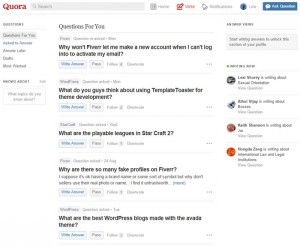— April 8, 2019

Introverts and extroverts work very differently and require different things from their employers to be successful at work. Because extroverts’ natural tendency is to voice concerns, it’s easy for workplaces to become more extrovert-centric and less ideal for introverted employees.
As a leader, meeting each and every need of all your employees is difficult, if not impossible, but there are a few things you can do to ensure your organization is making space for introverted employees to shine.
Before we get into the nitty-gritty, remember that introverts aren’t people-haters, they’re people who don’t receive energy from interacting with others. Instead, they receive energy from recharging with alone time. Many introverts actually enjoy spending time with others, but need to give themselves alone time so they can continue to enjoy it. This alone time is critical to their mental and emotional state, and subsequently, critical to the quality of their work. When an introvert hasn’t had enough alone time, they may come off as cold, unapproachable, and not a team player.
Make your workplace more introvert-friendly by trying these tips. See a difference in your entire team’s work in no time!
1. Offer A Variety of Work Spaces
As a leader, you should recognize that while open office spaces are trendy and work perfectly for many organizations, they aren’t a great environment for everyone. Open office spaces may cause introverted employees to feel distracted or overwhelmed by the buzz of the office. While extroverts tend to think out loud by talking through challenges, many introverts need quiet spaces to think through things and crank out work on their own.
Consider providing a variety of spaces for employees to work. Flexibility is key here. Along with collaborative spaces, dedicated quiet areas, or even quiet times, in your office. This could also mean providing remote work days.
2. Provide Consistent Scheduling
Being surprised by a last-minute meeting or presentation is an introvert’s worst nightmare. Introverts thrive in situations where they have time to prepare. So it’s important to schedule meetings as far in advance as possible and to try and keep a consistent meeting schedule. Be sure to include introverts in the scheduling process for especially important meetings. Ask them what works best and take their preferences into account when creating the schedule. This practice may take some extra effort, but it will pay off when they feel more confident and prepared for the meeting.
3. Schedule Small Group Face-to-Face Meetings
Many introverts don’t shine when participating in large group conversations. They may feel overstimulated and won’t speak up when they have valuable contributions. This can be a major problem for organizations that implement large group brainstorming or problem-solving sessions. As a leader, you may think that some of your employees aren’t putting in any effort during these meetings, while in reality, introverted employees are doing their best to stay engaged but can’t seem to get comfortable enough to speak up.
Leaders should utilize small group face-to-face meetings. These smaller settings are a more comfortable environment for introverts and will give them the space they need to communicate freely and effectively.
Also, remember that introverts enjoy having detailed agendas for meetings. Agendas should be in the hands of all participants well before the meeting, giving them time to formulate initial thoughts. This is a good practice that makes all meetings more productive, not just those that include introverted employees.
4. Ask and Listen
Like all employees, introverts want to be listened to. Sometimes the simplest solution is the right one. Want to know what your introverted employees need to succeed? Simply ask them. Organizations excel when employees feel heard and valued for their unique skills.
Most people have introverted and extroverted traits and will benefit from these changes, regardless of whether they consider themselves an introvert or extrovert.
Introverts have numerous strengths. Many are great problem-solvers and strategic thinkers. When you challenge them with detail-oriented tasks and set a deadline, they’ll typically deliver top-notch results.
This article was originally published here.
Business & Finance Articles on Business 2 Community
(76)







